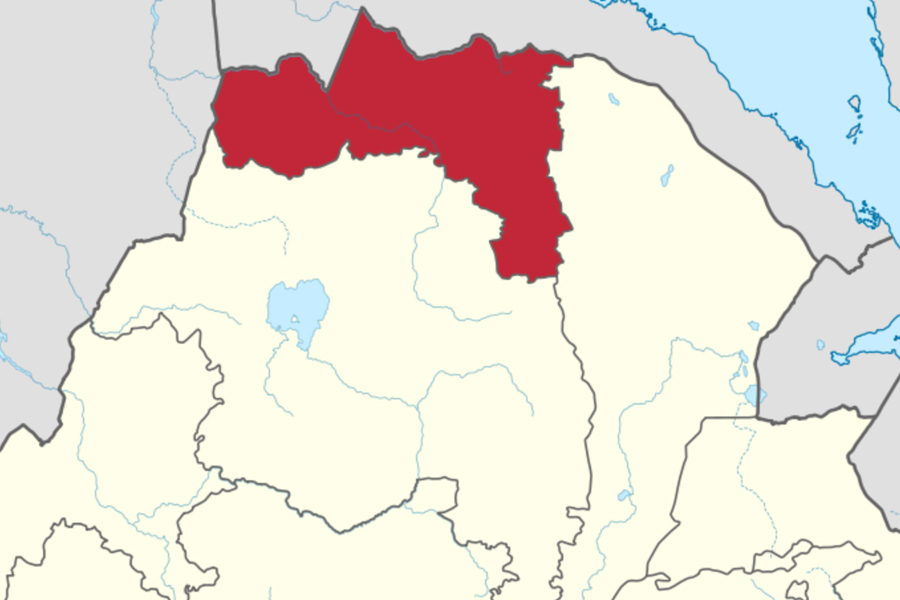
Commentaries | May 11,2024
Jun 27 , 2020
By HAGOS GEBREAMLAK ( FORTUNE STAFF WRITER )
NTU, a Danish consultancy company, has secured a contract to conduct a road traffic control and emergency response pilot study for 71 million Br.
The Ministry of Transport hired the company mid-June to lead a road safety and post-impact care project at five selected corridors in four regional states. The corridors are located in Amhara, Tigray, Oromia, and Southern Nations, Nationalities & Peoples' regional states and cover a total road network of 500Km.
The study includes asphalt roads that stretch from Addis Abeba to Fiche, Addis Abeba to Adama, Hossna to Butajira, Bahir Dar to Enjibara, and Meqelle to Fireweyni. Each segment covers 126Km, 84Km, 96Km, 112Km, and 81Km, respectively. All of the segments are two-lane roads except the Addis Abeba-Adama road, which has six lanes.
NTU, a company that provides consulting within the engineering, economic, planning and management fields, is expected to deliver the project in 18 months. The consultant will also provide capacity building training to traffic police, create publicity and awareness campaigns, promote safer behaviour among road users, and improve post-crash response and care services.
The purpose of the study is to enhance traffic law enforcement and thereby change the behaviour of pedestrians, cyclists and motorists, and to assess the impact of the improved post-crash care facilities on the rate of fatal accidents, according to Yonas Belete, national road safety council officer at the Ministry.
"The project aims at bringing well-coordinated and integrated road safety measures," he said. "The results will be used as benchmark performance measures to design a national road safety rollout programme."
The piloting test project is also committed to enhancing the level of cooperation between different road safety agencies, i.e. first responders, healthcare professionals and the local community.
It is about the capacity building of the road safety stakeholders and the transfer of road safety knowledge to the National Road Safety Council under the Ministry and to other participating partners. The overall objective of the study is to identify policy and institutional regulatory gaps in the sector through collecting study samples from a variety of locations in the country to actualise a national solution that can be adopted at a later stage.
The study comprises four main tasks to be accomplished in the corridors. The first task includes the enhancement of road safety regulations, identifying inadequacies in policy and regulatory tools to optimise the policy and regulatory instruments.
For the second task, the company will engage with the public and create awareness campaigns in support of traffic law enforcement. The third task involves the monitoring and evaluation of road safety enforcement enhancements; publicity and awareness campaigns; and improvements to post-impact care and safety improvements. Improving post-impact care is the fourth task of the study.
“We’ve recognised that we need to rapidly expand and improve the quality of the road network with high road safety standards to promote further economic growth,” said Yonas.
The number of vehicles in Ethiopia is small but the country experiences a high number of traffic accidents, argues Shiwaye Mersha, lecturer of urban transport management at Kotebe Metropolitan University. She adds that there is a gap between awareness of the law and the implementation of road safety regulations.
Currently, there are 1.75 million vehicles in Ethiopia, two-thirds of which are located in the capital.
The project should emphasise the awareness creation, capacity building, and strict enforcement of traffic laws and regulations, the expert recommends.
“Driving licenses should be availed to candidates upon learning advanced skills,” recommended Shiwaye.
Most of the traffic accidents are attributed to human errors caused by a lack of skills on how to deal with and follow the traffic safety rules, according to her.
“Once given a driving license, the status of drivers’ skills should occasionally be evaluated,” she said.
Marking the roads is another step being considered for the project as a way to reduce potential accidents by making drivers cautious, according to Shiwaye.
In the last nine months of the current fiscal year, traffic accidents claimed 350 deaths in Addis Abeba with 1,510 serious and 680 slight injuries.
Last year, 40,871 road accidents occurred nationwide, causing 4,597 deaths, 7,408 serious injuries and 5,949 slight injuries. These accidents damaged property worth 872.9 million Br.
Globally, road traffic crashes cause 1.35 million deaths a year and 20 to 50 million non-fatal injuries, with 93pc of fatalities occurring in developing countries. Road traffic accidents cost three percent of countries' annual GDP.
PUBLISHED ON
Jun 27,2020 [ VOL
21 , NO
1052]

Fortune News | Jul 25,2020

Editorial | Sep 27,2020

Fortune News | Nov 21,2020

Radar | Oct 26,2019

Editorial | May 13,2023

Dec 22 , 2024 . By TIZITA SHEWAFERAW
Charged with transforming colossal state-owned enterprises into modern and competitiv...

Aug 18 , 2024 . By AKSAH ITALO
Although predictable Yonas Zerihun's job in the ride-hailing service is not immune to...

Jul 28 , 2024 . By TIZITA SHEWAFERAW
Unhabitual, perhaps too many, Samuel Gebreyohannes, 38, used to occasionally enjoy a couple of beers at breakfast. However, he recently swit...

Jul 13 , 2024 . By AKSAH ITALO
Investors who rely on tractors, trucks, and field vehicles for commuting, transporting commodities, and f...

Jul 5 , 2025
Six years ago, Ethiopia was the darling of international liberal commentators. A year...

Jun 28 , 2025
Meseret Damtie, the assertive auditor general, has never been shy about naming names...

Jun 21 , 2025
A well-worn adage says, “Budget is not destiny, but it is direction.” Examining t...

Jun 14 , 2025
Yet again, the Horn of Africa is bracing for trouble. A region already frayed by wars...